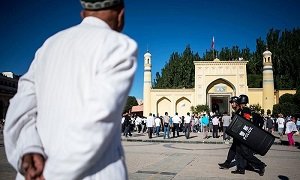An estimated one million people, mostly Muslim minorities, are being held in detention centers across the Xinjiang region in China, writes Iris Oppelaar, a multimedia journalist, in the Voices on Central Asia.
Common reasons for detention include studying Islam and praying or having family members who live abroad. China maintains that these detention centers are “vocational education centers,” although numerous reports say they are harsh internment camps. Uyghurs and Kazakhs who are not detained are placed under house arrest, have their passports confiscated, and are denied permission to leave Xinjiang.
The family members of those missing or detained remain behind in Kazakhstan, lost between hope and fear.

“The last time I spoke to my mother (Nurzada Zhumaqanqyzy) was two or three years ago. She was detained in June 2018. She was first taken to a camp. From December onwards, we have heard many different rumors about the whereabouts of my mother. In June 2019, we heard that my mother was sentenced to 20 years in prison and sent to a women’s prison. The official verdict reads ‘using superstition to subvert the rule of law.’ My mother studied religion with a local imam for a few months back in 2005. Praying and teaching others how to pray is the reason for her detention.”
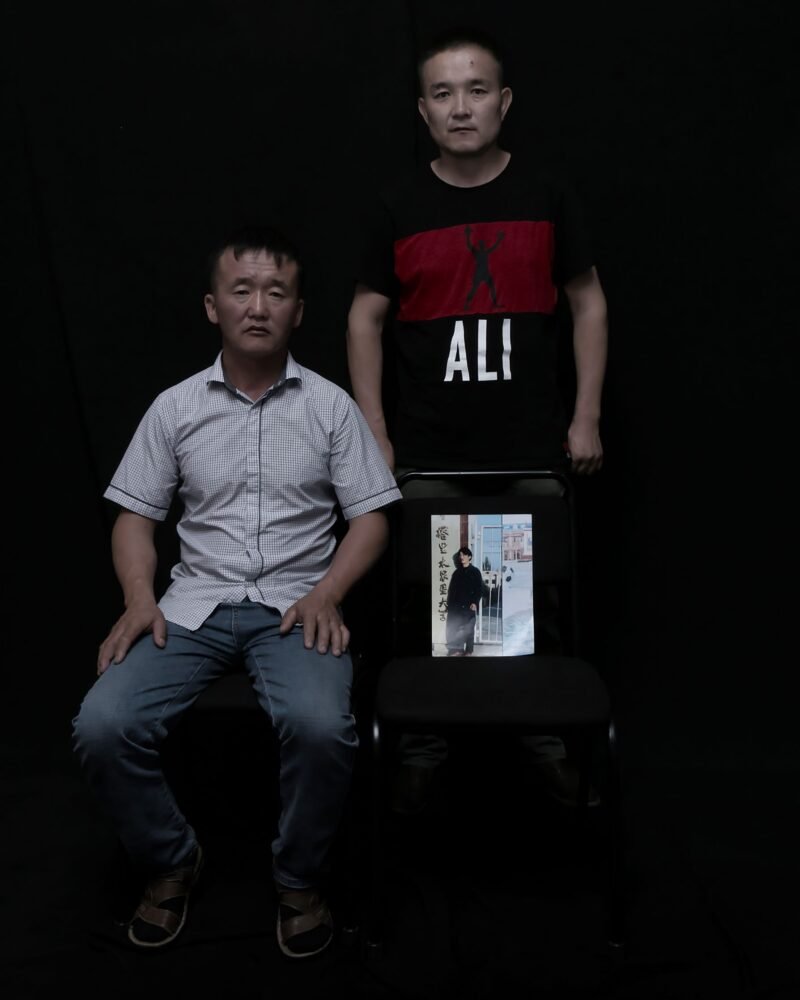
“My brother (Aitugan Turlan) was studying in China. After that, he worked in the Karasu village government office and was responsible for religious affairs from 2011 to March 2018. He’s a graduate of Tarim University. Currently, he is in a re-education camp.”

“This is my relative Tursungul Omerjan. She is an ethnic Uyghur. She was detained in March 2018 and sent to a camp in Xinjiang province. She has three children. Her husband has not been detained, so he might be taking care of them, but we don’t have contact with him. Whenever we try to reach them, there is no response.”
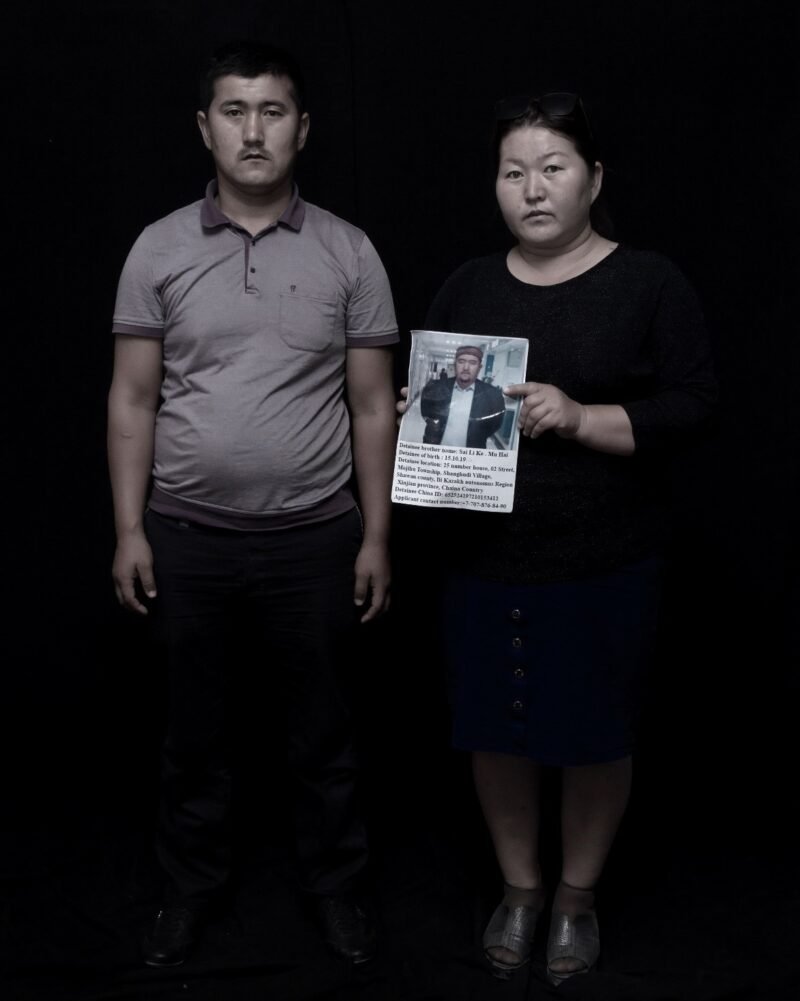
“My older brother is an official Imam. Recently, in June 2019, he was sentenced to 20 years.”

“In May 2017, my wife (Gulnar Muratqyzy) went to China with our 1-year-old son (Abduzahir Zhumagali). Their passports were confiscated. This was more than 2 years ago. The authorities are requesting that I come to China, but I won’t. A few days ago, the police came and told her they would let her go in October.”
Unfortunately, the false hope from these assurances is far too common.
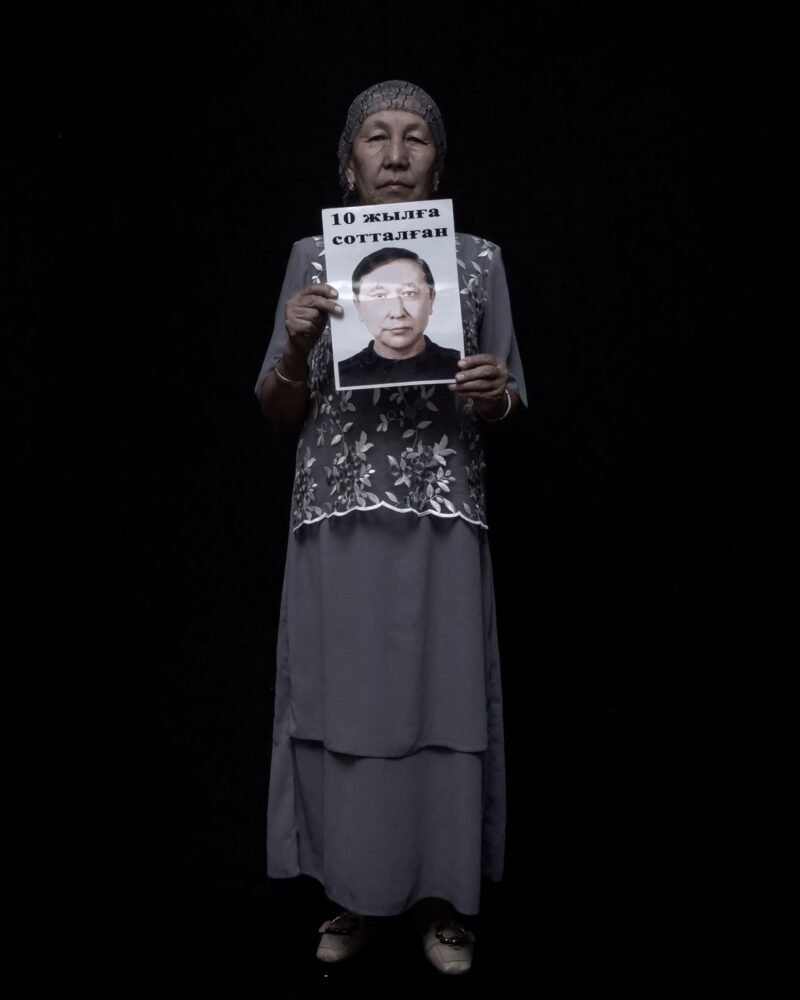 “We moved to Kazakhstan after his retirement. My husband, Zharqynbek Qasymbai, worked in China for 36 years for the local government as a party member of the agricultural department. In 2017 my husband traveled to China to extend his visa. He never returned. Instead, he was sentenced to 20 years in prison in July 2017.”
“We moved to Kazakhstan after his retirement. My husband, Zharqynbek Qasymbai, worked in China for 36 years for the local government as a party member of the agricultural department. In 2017 my husband traveled to China to extend his visa. He never returned. Instead, he was sentenced to 20 years in prison in July 2017.”
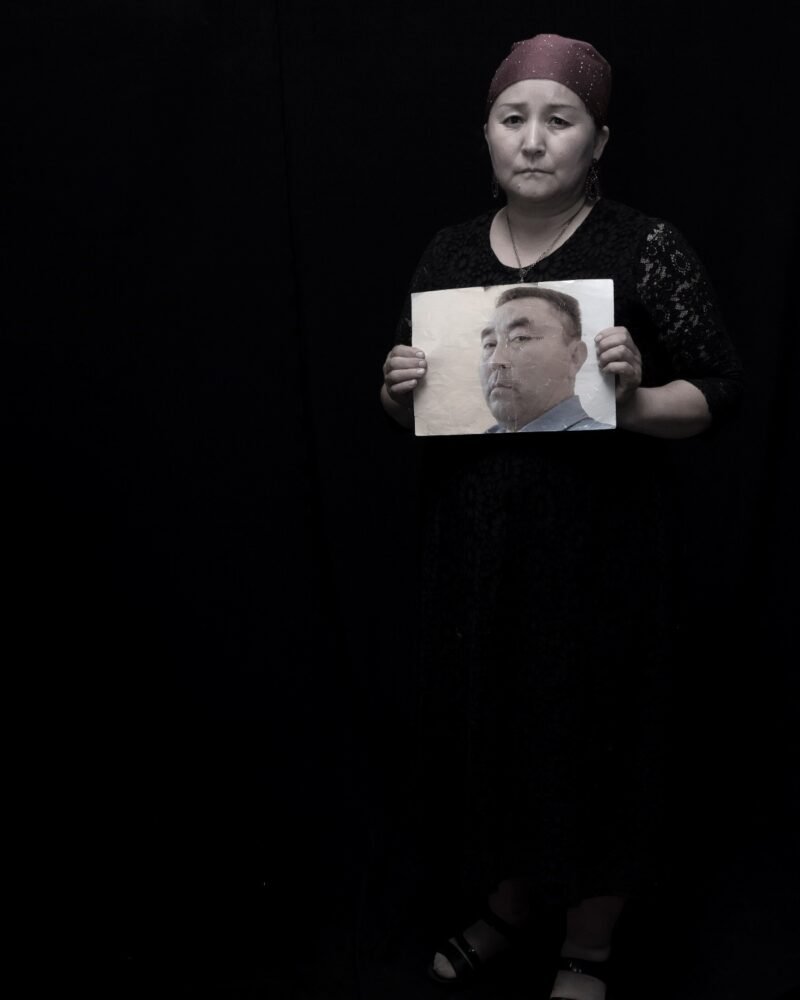 “Four times I have traveled to Xingjiang to look for my husband (Sarsenbek Akbar). Once, I was also interrogated. He had been transferred to another camp. I finally got to talk to my husband. I thought that if I showed the guards how hard it is for me, they might feel remorse.”
“Four times I have traveled to Xingjiang to look for my husband (Sarsenbek Akbar). Once, I was also interrogated. He had been transferred to another camp. I finally got to talk to my husband. I thought that if I showed the guards how hard it is for me, they might feel remorse.”
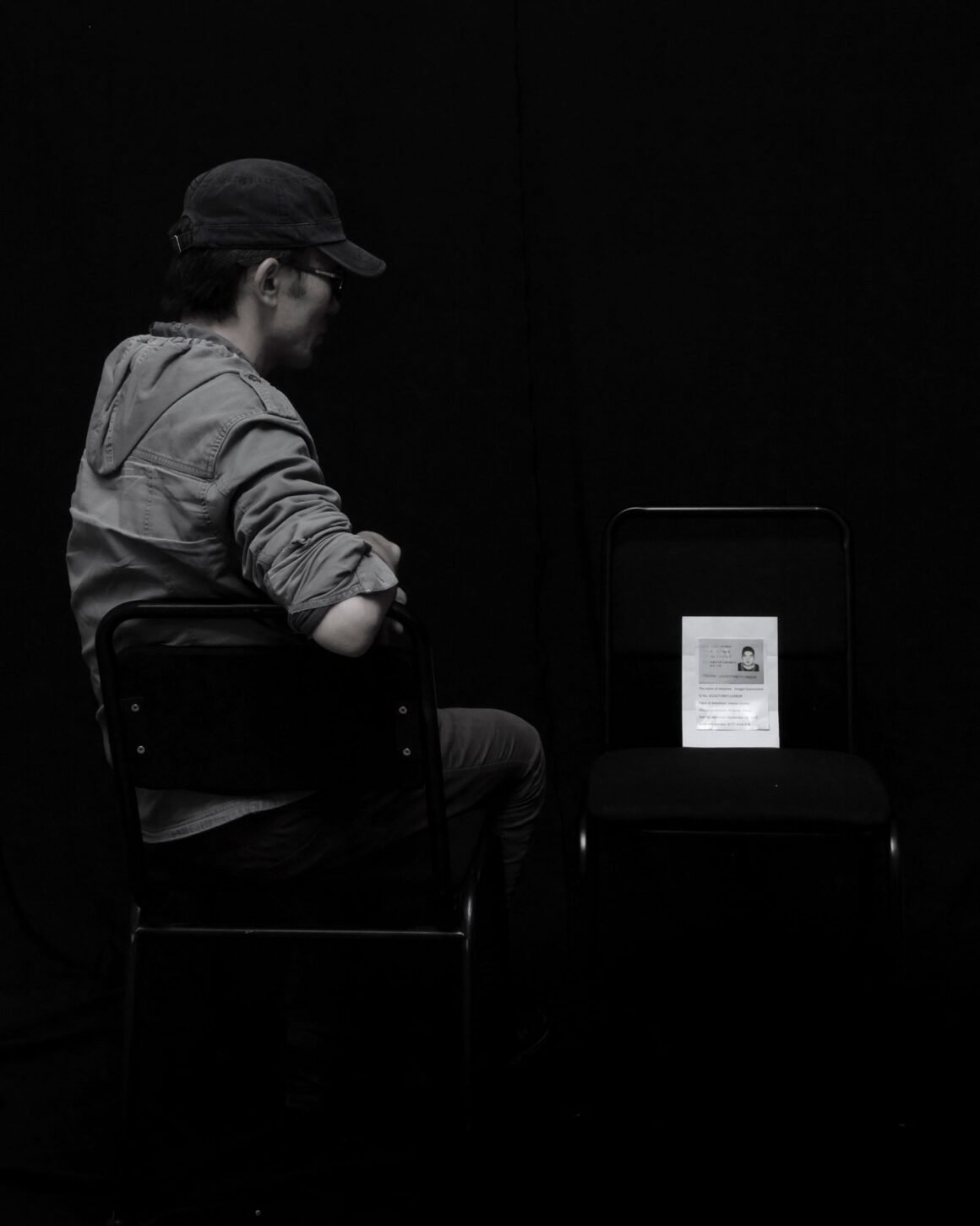
“The detention centers are worse than camps. Torture is common there…. In September 2017, my brother (Symagul Qusmanbek) was arrested. He was the head of the local administration in a small town. They now accuse him of things he supposedly did during his time as the head of administration. The rumor is that he was sentenced to three years in prison.”
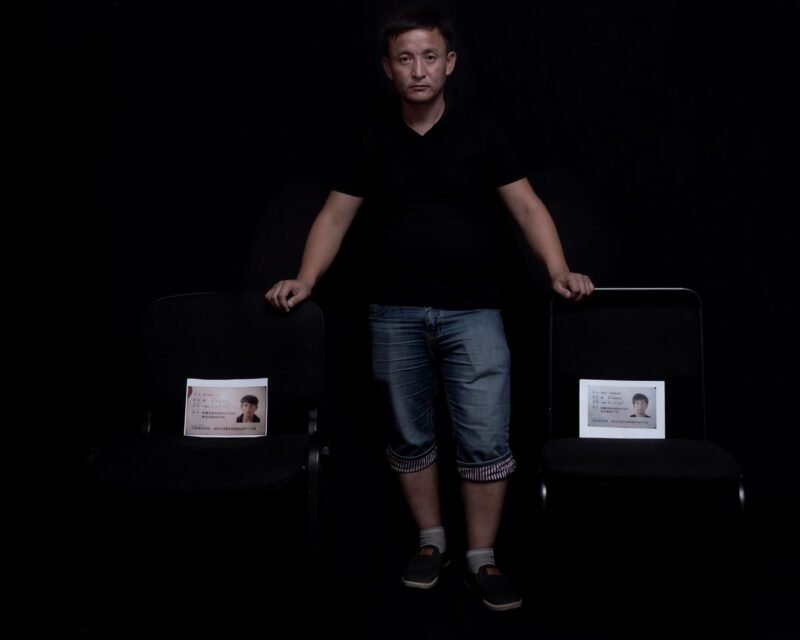 ”Family is very important in Kazakh society. Our families are very close. My nephew (Shalkar Tursynaly) and Tileuzhan Adilbekuly are both 26 years old. They were sentenced to 15 years in prison. A few years ago, they attended a religious course for a few months. The last time I saw my nephew was in 2017 when I went to visit him in China.”
”Family is very important in Kazakh society. Our families are very close. My nephew (Shalkar Tursynaly) and Tileuzhan Adilbekuly are both 26 years old. They were sentenced to 15 years in prison. A few years ago, they attended a religious course for a few months. The last time I saw my nephew was in 2017 when I went to visit him in China.”
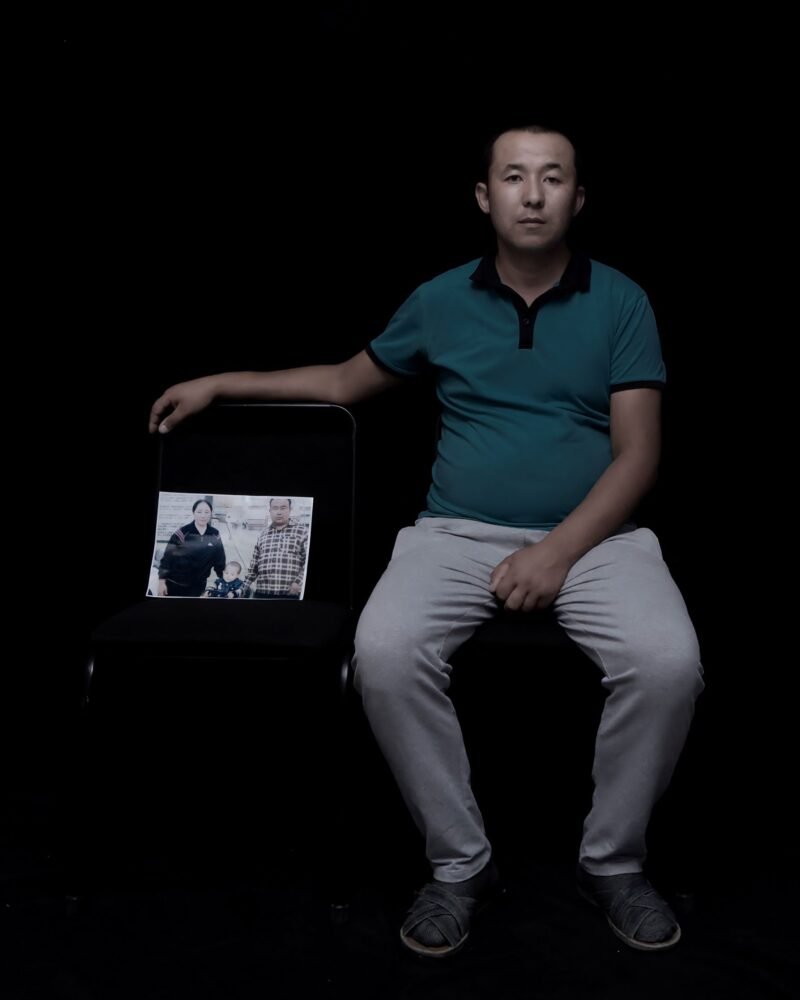 ”My brother-in-law used to work as a security guard at the mosque. This is probably the reason for their detention. The rumors are that my sister and her husband have not been sentenced and imprisoned, but they are in a camp. They have 2 children. We don’t know where the children are or who is taking care of them. Maybe some relatives. There is no communication…”
”My brother-in-law used to work as a security guard at the mosque. This is probably the reason for their detention. The rumors are that my sister and her husband have not been sentenced and imprisoned, but they are in a camp. They have 2 children. We don’t know where the children are or who is taking care of them. Maybe some relatives. There is no communication…”
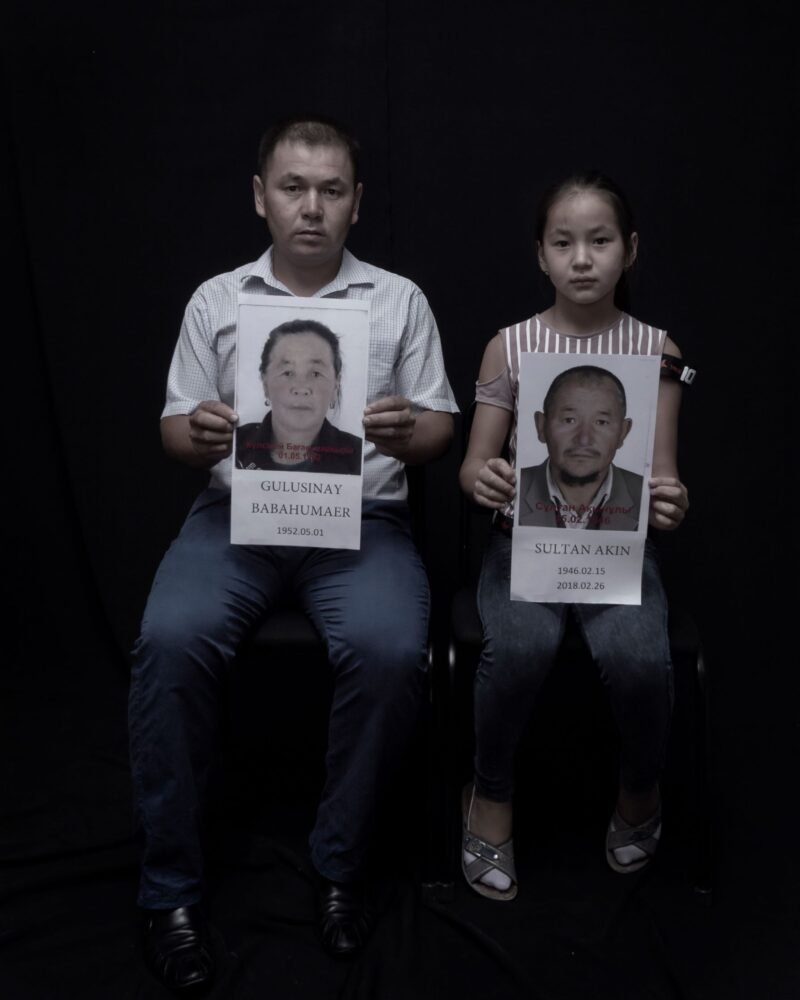
“My mother (Gülsinai Babahumaer) and father (Sultan Aqyn) are both in China. My mother is under house arrest, but my father was arrested—and the rumor is that he was sentenced to 11 years in prison. He went to Mecca a few years ago…. That is the only reason I can think of for his prosecution. My mother is crying every day… What can we do?”
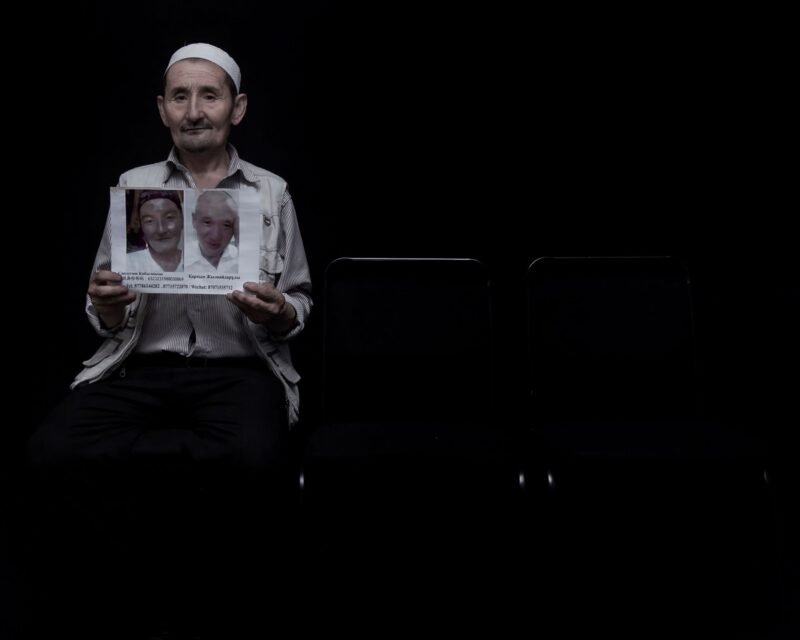 “My daughter and son in law were detained in November 2017. They were detained without any reason and sent to a concentration camp. I only heard about their detention in May 2019. I wrote petitions to the Kazakh government. The Kazakh government told me they are Chinese citizens and there is nothing they can do.”
“My daughter and son in law were detained in November 2017. They were detained without any reason and sent to a concentration camp. I only heard about their detention in May 2019. I wrote petitions to the Kazakh government. The Kazakh government told me they are Chinese citizens and there is nothing they can do.”
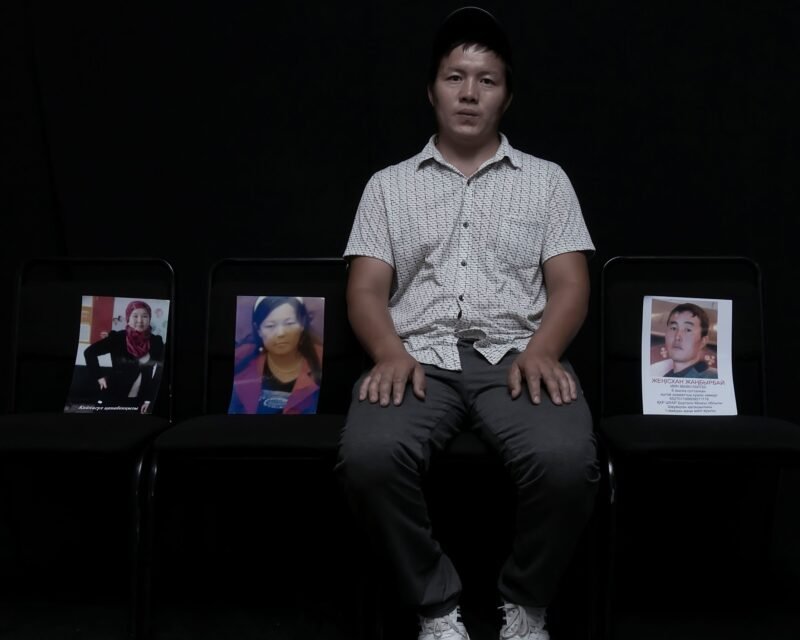
“Four of my family members are detained (Duisen Ahmethan, Qanigul Qanibek, Zhenishan Zhanbirbai, and Lazzat Qanibek).’’
Duisen Ahmethan was sentenced to 10 years in prison. Zhenisan was detained in January 2018 and later sentenced to 6 years in prison. Lazzat went to China in August 2016 and had her passport seized; she spent 16 months in a concentration camp and was then given a 10-year prison term. Qanigul went to China in August 2016 and had her passport confiscated. She was later taken to a camp where she spent 2 years before being given an 8-year sentence.”
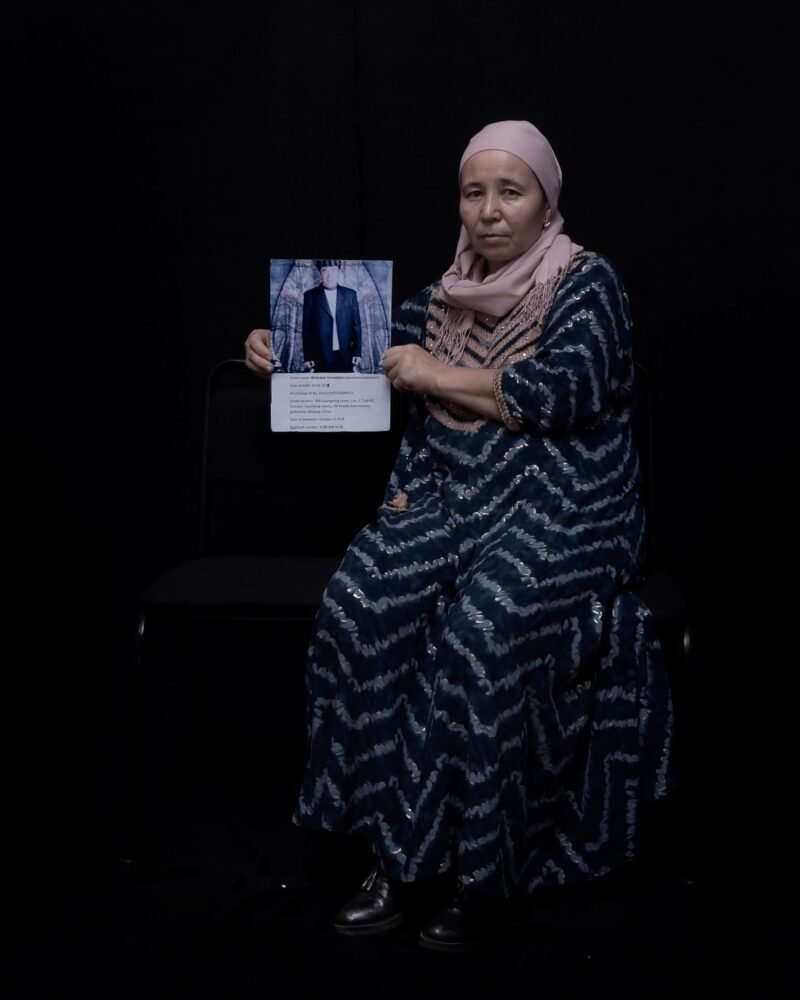
“My brother, Birlesbek Ermekbai, is an Imam. I just learned that he had been sentenced to 11 years in October 2018. Most likely he is in a camp. I haven’t talked to him since 2015. I was afraid to contact him because people who had relatives abroad were in danger, so I stopped any contact with him after I moved to Kazakhstan in 2015.”
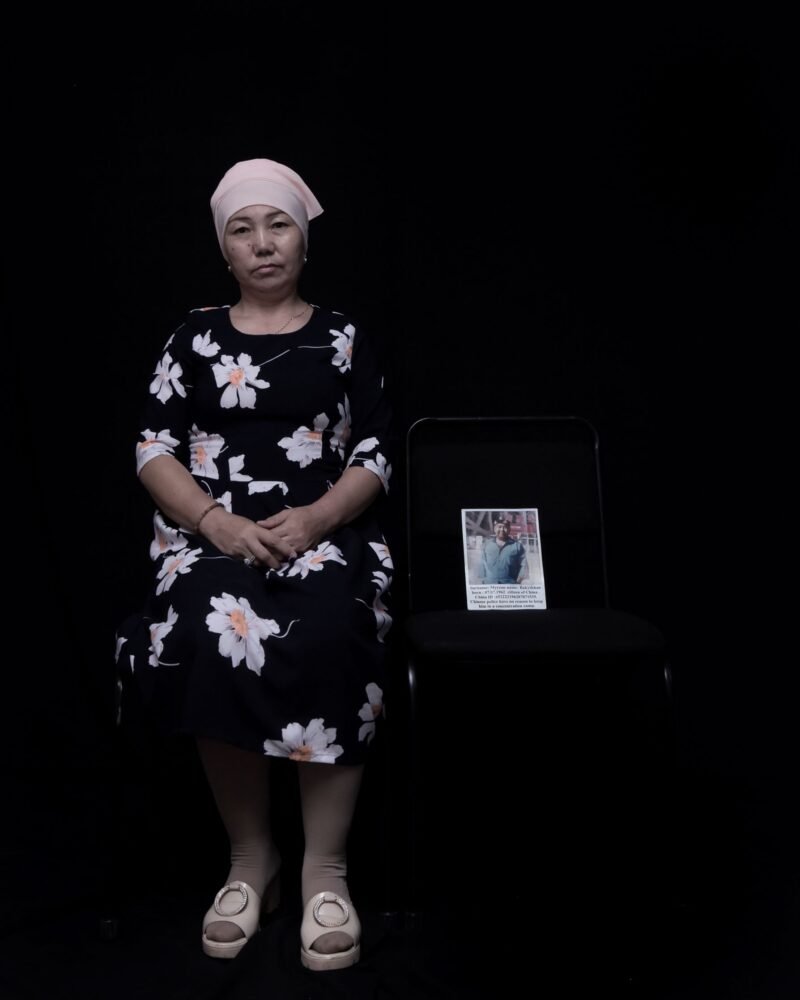
“My brother, Myrzan Baqythan, has been sentenced to 14 years. He was a government-approved Imam. I talked to my sister-in-law yesterday. I haven’t talked to my brother since his detention. The official reason for his detention given on his incarceration notice is: ‘advancing religious extremism.’”

“My friend Erbolat Baiken has been detained along with his 2 brothers and father. They were given a sentence between 3 and 15 years. The reasons for their detention have been numerous. In fact, they are leading figures in society and successful businessmen who also bought real estate in Kazakhstan.”
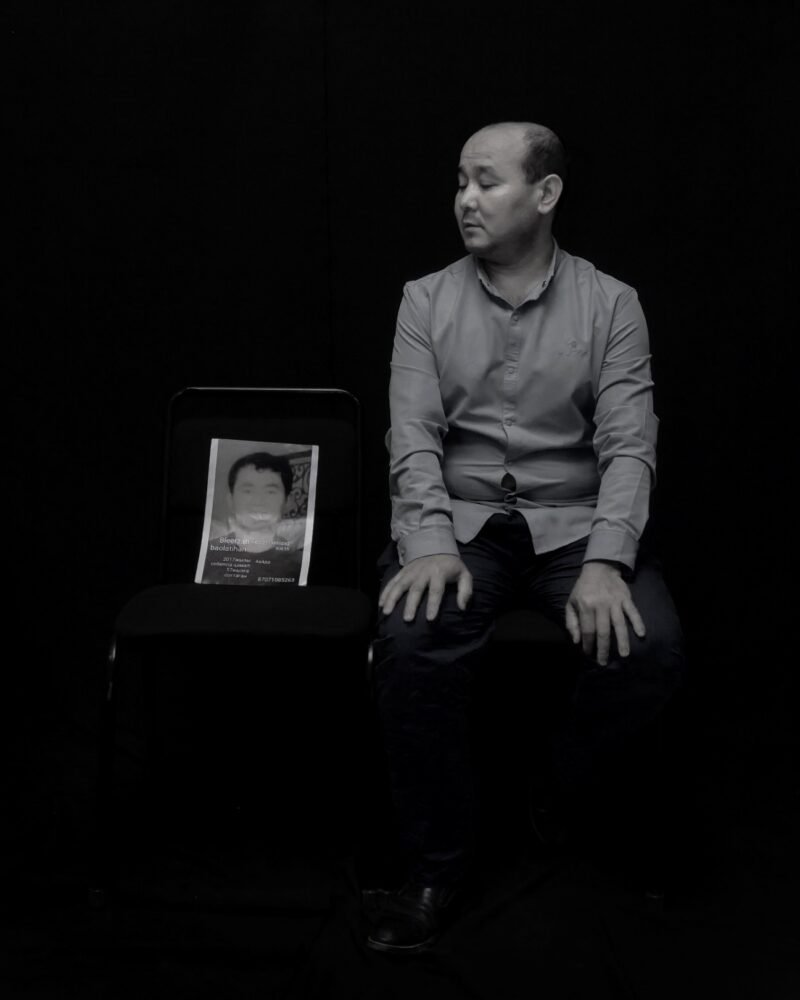
“My brother (Bekzat Bolathan), was born in 1985. He was detained in April 2017 and sentenced to 17 years in prison. The reason for his detention and sentence is unknown. I am just an ordinary farmer; the authorities haven’t told me anything about his sentence. My parents are in China. They are free but we have no communication. Their WeChat account was closed. I have heard that my father went to look for my brother in prison, but they didn’t allow him to visit. He was once able to bring clothes and medicines and money.”
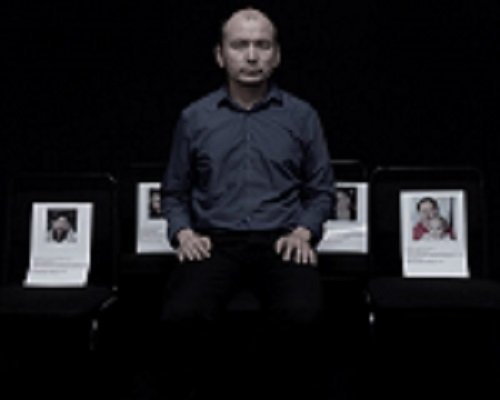
“My two brothers (Amangul and Estai Agymolyda), sister (Rabekan Agymolyda), and sister in law (Yrysgul Qaztai) were sentenced to between 11 and 14 years in prison in June 2019. They have been transferred from camps to prisons. Even though the authorities say they are releasing people, the number of detainees in camps is decreasing while the number of people in prison is increasing.”
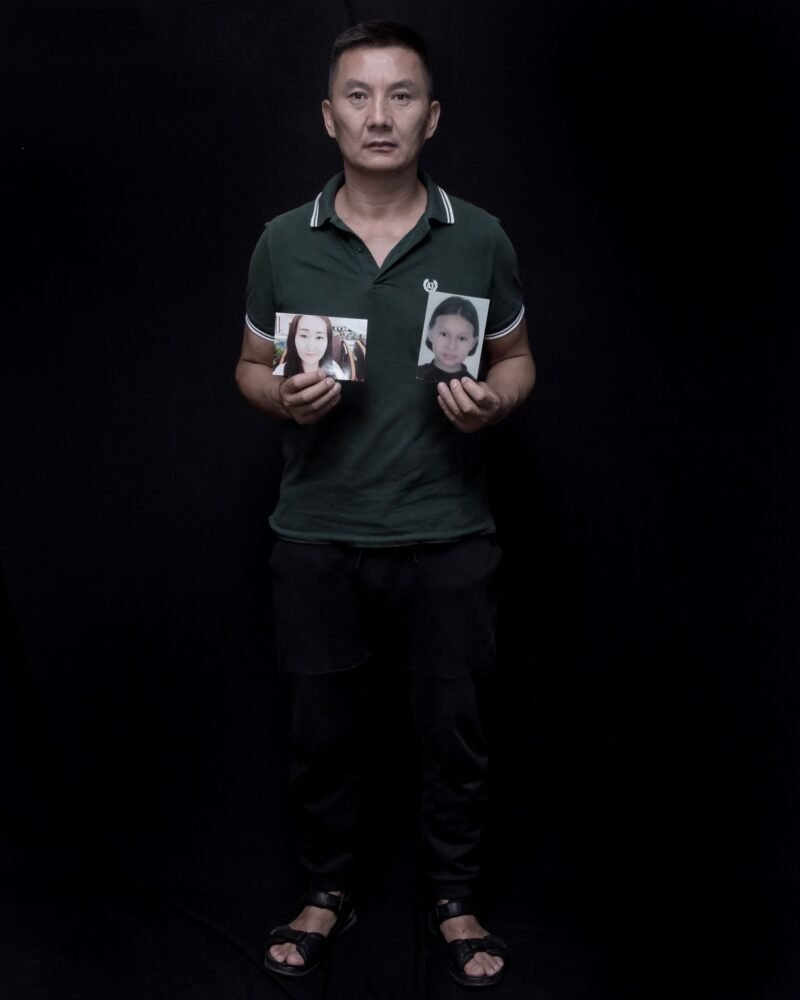
“Two years ago, I became a Kazakh citizen. My wife (Qaisha Aserbek) and our daughter (Inzhu Arshyn) are not able to travel to Kazakhstan. They are Chinese citizens and their passports have not been issued by the Chinese authorities, which is preventing them from leaving Xinjiang and traveling to Kazakstan.”–Courtesy: Voices on Central Asia
 Iris Oppelaar is a multimedia journalist who covers stories focused on human rights and migration in Central Asia and Russia. Iris holds an MA in Politics, Security and Integration from the School of Slavonic and East European Studies (UCL, United Kingdom) and a BA in European Studies. Her recent multimedia work WILDNESS has been awarded the 2nd price for the 2019 International Photography Awards (IPA). www.irisoppelaar.com
Iris Oppelaar is a multimedia journalist who covers stories focused on human rights and migration in Central Asia and Russia. Iris holds an MA in Politics, Security and Integration from the School of Slavonic and East European Studies (UCL, United Kingdom) and a BA in European Studies. Her recent multimedia work WILDNESS has been awarded the 2nd price for the 2019 International Photography Awards (IPA). www.irisoppelaar.com

